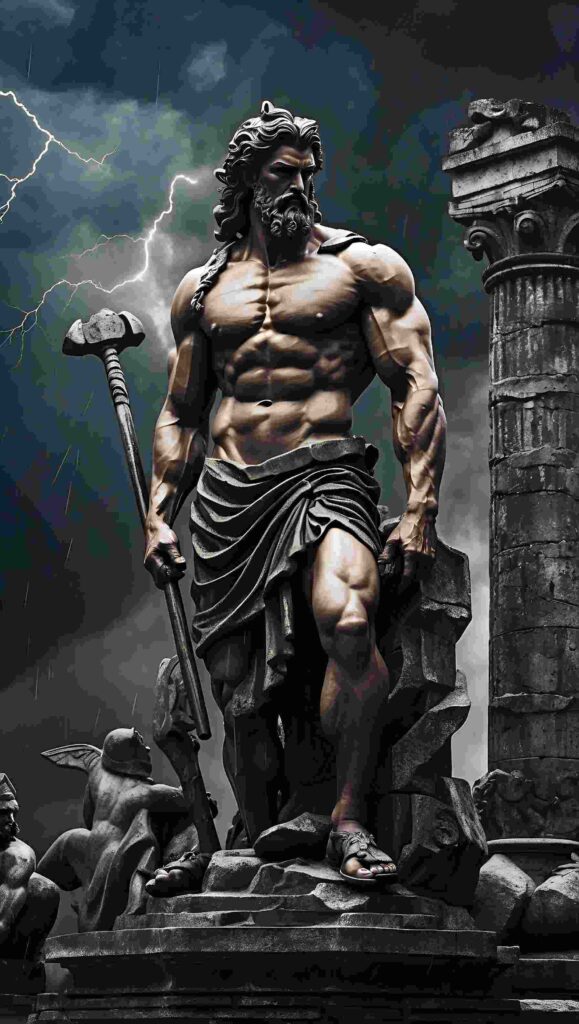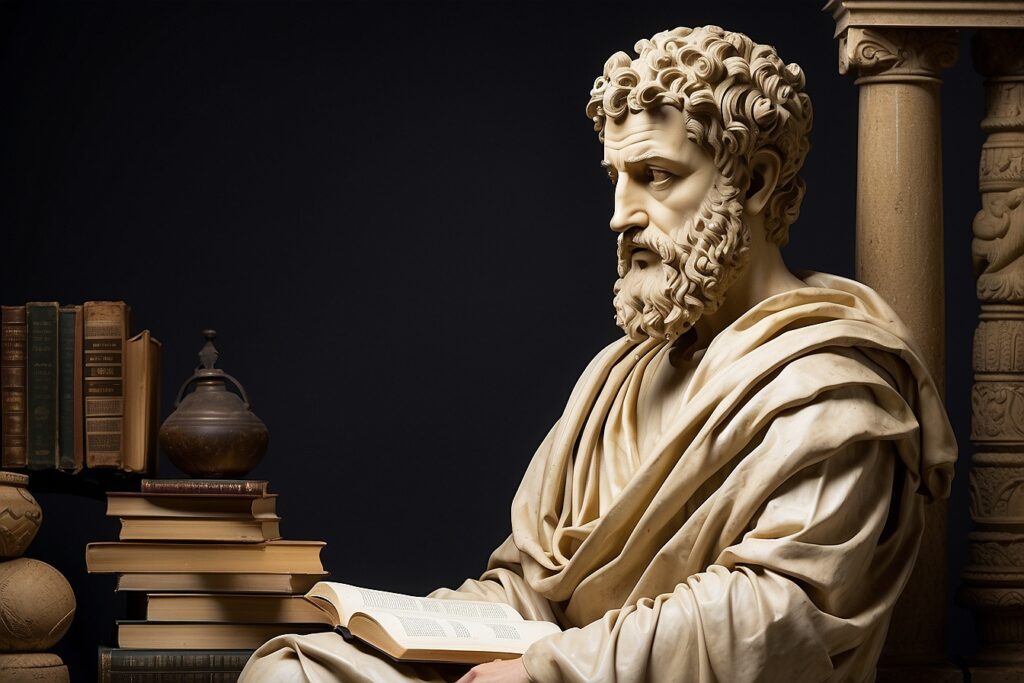-
Introduction
-
Background and Early Life
-
Rise to Power
-
-
Philosophical Influences
-
Stoicism
-
Teachers and Mentors
-
-
The Reign of Marcus Aurelius
-
Governance and Philosophy
-
Military Campaigns
-
The Antonine Plague
-
-
Personal Life and Legacy
-
Family and Succession
-
Writings: Meditations
-
Death and Posthumous Reputation
-
-
Conclusion
-
The Stoic Emperor
-
Influence on Later Generations
-
(A Surprise At Last)
Introduction
Marcus Aurelius, born on April 26, 121 AD, in Rome, is one of history’s most renowned philosophers and emperors. Emerging from a wealthy and politically significant family, he was destined for greatness from an early age.
His upbringing was marked by a comprehensive education in the liberal arts, focusing on literature, rhetoric, and, most importantly, philosophy. This foundation laid the groundwork for his future as a Stoic philosopher and a ruler whose reign would be characterized by wisdom, virtue, and a deep commitment to the welfare of his people.
Background and Early Life
The path to power for Marcus Aurelius was unique, shaped by the Roman tradition of adoption among the elite. Adopted by Emperor Antoninus Pius, he was groomed for leadership, embodying the Roman virtues of discipline, duty, and respect for the gods.
In 161 AD, upon the death of Antoninus Pius, Marcus Aurelius ascended to the throne, becoming co-emperor with Lucius Verus.
This period was a significant turning point, not only for Marcus but for the Roman Empire itself, facing challenges from military conflicts to internal strife and the devastating Antonine Plague.
Despite these challenges, Marcus Aurelius is best remembered for his philosophical contributions and the way he integrated Stoic principles into his governance. His reign is often cited as a model of enlightened leadership, prioritizing the common good above personal gain.
His written work, particularly the “Meditations,” provides a window into the mind of a ruler who sought wisdom and virtue in every aspect of life. These writings, intended as personal reflections, have survived to offer profound insights into the practice of Stoicism and the responsibilities of power.
Marcus Aurelius’ life and reign offer a timeless lesson on the power of philosophical insight to guide ethical leadership. His legacy, as both a philosopher and emperor, continues to inspire discussions on governance, ethics, and the human condition. Through his writings and deeds, Marcus Aurelius remains a pivotal figure, embodying the ideals of Stoic philosophy and the virtues of Roman leadership.
Rise to Power
The ascent of Marcus Aurelius to the zenith of Roman power is a narrative marked by foresight, preparation, and the embodiment of Stoic virtues. Born into a family of wealth and status, Marcus was destined for a role far beyond the ordinary, a path that was significantly shaped by the Roman practice of adoption.
The turning point came when Emperor Antoninus Pius, recognizing Marcus’s potential for leadership and wisdom, adopted him. This act was not merely a gesture of favor but a strategic move to ensure the continuity of stable governance.
Under the tutelage of Antoninus Pius, Marcus received an education that went beyond academics; he was immersed in the practicalities of ruling an empire, from jurisprudence to administration and military strategy.
In 161 AD, the death of Antoninus Pius propelled Marcus Aurelius and Lucius Verus into power as co-emperors, a testament to the Roman Empire’s adaptability in leadership succession. Marcus’s rise to power was characterized by a seamless transition, one that reflected the confidence and trust placed in him by his predecessor and the Roman Senate.
His assumption of the throne was not merely a change in leadership but a continuation of the principled governance that had stabilized the empire. Marcus Aurelius stepped into his role with a philosopher’s mind and a ruler’s responsibility, setting the stage for a reign that would navigate the complexities of military invasions, internal dissent, and a devastating plague with wisdom and stoic calm.
Through his rise to power, Marcus Aurelius exemplified how virtue, preparation, and foresight can shape a leader capable of guiding an empire through its most challenging times.







One thought on “Marcus Aurelius: Wisdom of the Stoic Emperor”